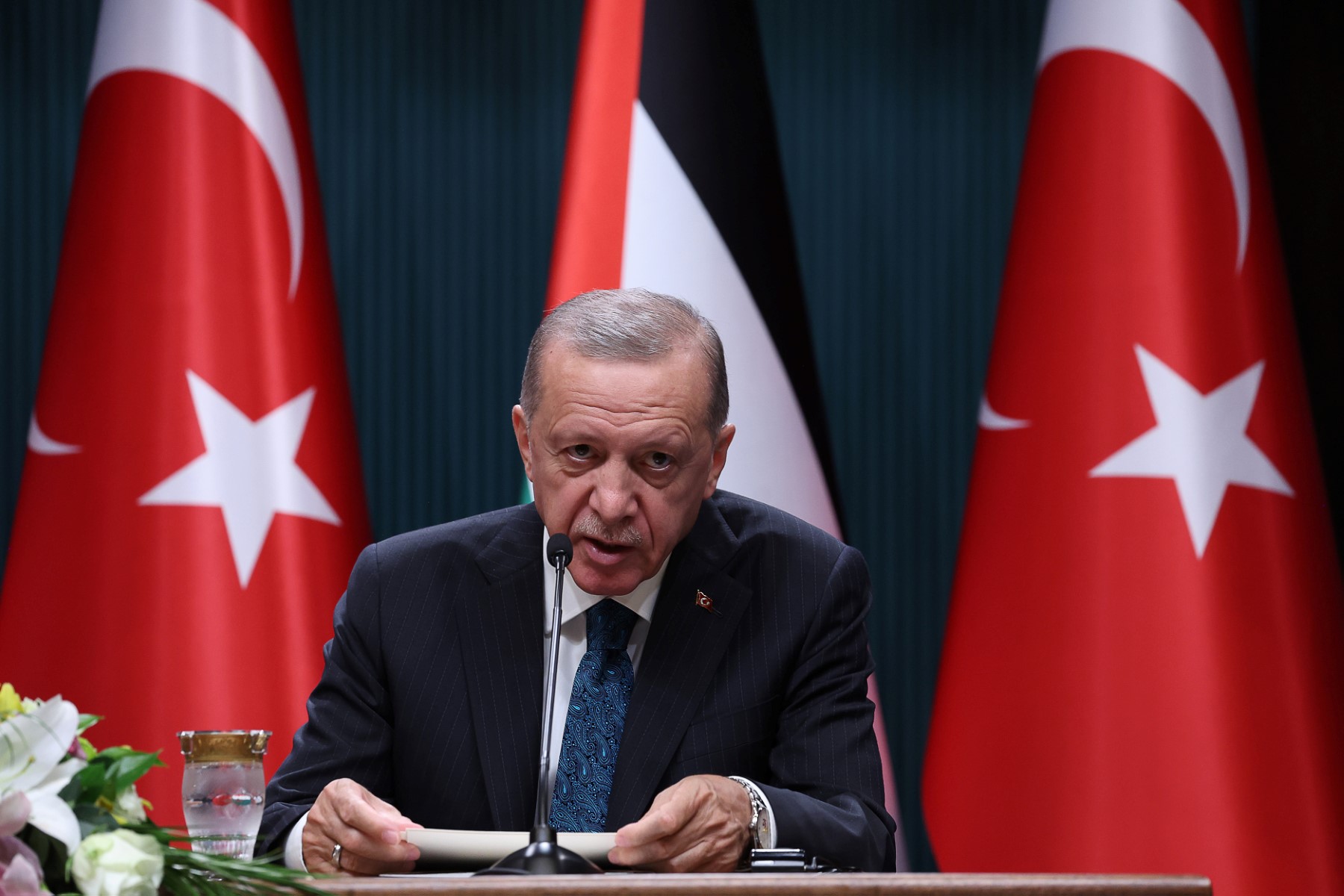Brussels, Belgium – When figures in the EU talk about the new members that might join the union by 2030, there is no mention of Turkey. It is a glaring omission noticed by Ankara.
As when the European Union published its annual reports on candidate countries’ progress towards EU norms on Wednesday, all eyes will be on Ukraine and Moldova.
Turkey, a formal candidate for membership since 1999, will barely be discussed — but it wasn’t always the case.
After EU leaders approved the start of accession talks with Turkey in 2004, the then British premier Tony Blair hailed it as a historic event that showed there was no clash of civilisations.
But European leaders at the time found themselves stuck in a tussle with Ankara over the divided island of Cyprus, a crisis that proved to be only a foretaste of the turbulent relationship.
Today, ties are more transactional than a path towards partnership, even if neither side will openly admit this. Experts nevertheless still point to limited areas in which the relationship can improve.
For many EU member states, the long-stalled accession talks are dead in all but name. In September, Austria — long opposed to Turkey’s membership — even called for the process to end.
EU officials privately say this would be more honest, but no one wants to make the first move.
After Turkey’s elections in May, EU leaders revived hopes for improvement. They ordered the EU’s executive arm and its foreign policy chief to prepare a report on how to develop the relationship.
The report is due before December’s next summit gathering of EU leaders, but experts and EU officials warn against expecting any real improvement in ties.
“I’m not expecting any meaningful revitalisation of the relationship because there are limited areas where progress can really be made,” said Senem Aydin-Duzgit, an international relations professor at Istanbul’s Sabanci University.
‘Turkey fatigue’
There is “Turkish fatigue” in Europe, as Austria’s comments show, said the European Parliament’s Turkey rapporteur, Nacho Sanchez Amor.
“We are tired of maintaining the accession process alive when apparently there is no real political will from the other side to advance on democratic standards,” the MEP said.
The EU accuses Turkey of backsliding on democracy and the rule of law, particularly after the failed 2016 coup and the subsequent crackdown on its perceived supporters and government opponents.
The relationship’s transactional nature deepened after the two sides agreed a deal in 2016 under which the EU threw billions of euros at Ankara to stop migrants coming to Europe after the 2015 refugee crisis.
“Transactional is not a derogatory term,” Amor said. “Don’t mix the accession process, which has its own rules based on values and principles, with the rest of the relationship.”
The report due later this year will likely recommend updating the customs union, for which Turkey’s trade minister was in Brussels in October to drum up support.
“If the customs union talks could start with this current government, I don’t think they would lead anywhere,” Aydin-Duzgit said, since Ankara would have to make unappealing reforms.
But if Brussels is sending mixed messages about the relationship’s future, so is Turkish President Recep Tayyip Erdogan.
He warned in September that Turkey could “part ways with the EU if necessary”, just two months after he said that if Sweden wanted Ankara’s green light to join NATO, the EU should “pave the way to Turkey’s membership”.
Turkey’s ambassador to the EU reaffirmed Turkey’s commitment to accession, but acknowledged it was not going to be easy.
“The Turkish government is committed to EU membership,” said Faruk Kaymakci. “What we expect is equal treatment among candidate countries.”
Calls for clarity
Is it time for Brussels to be honest about Turkey’s accession?
Many observers, and Turks, seek clarity, while others argue the nail was firmly in the coffin when then French president Nicolas Sarkozy and former German chancellor Angela Merkel together came out against Turkey’s membership in 2009.
And, in a set-back for Turkey, its biggest defender, Britain, left the EU.
There is, however, pressure from the United States not to end accession negotiations, an EU official said, with Washington desperate to keep Turkey out of Russia’s arms and closer to the West amid Moscow’s attack on Ukraine.
Brussels now faces a bigger dilemma about Ukraine’s future membership, and the challenges and opportunities its accession would bring.
One that some say blows any chance of Turkey’s membership.
“Ukraine’s membership would change the EU and it could not take on another member like Turkey,” the official told AFP.

